Thomas Sumner

Trustworthy journalism comes at a price.
Scientists and journalists share a core belief in questioning, observing and verifying to reach the truth. Science News reports on crucial research and discovery across science disciplines. We need your financial support to make it happen – every contribution makes a difference.
All Stories by Thomas Sumner
-
 Planetary Science
Planetary ScienceWhy you can hear and see meteors at the same time
People can see and hear meteors simultaneously because of radio waves produced by the descending space rocks.
-
 Earth
EarthIce particles shaped like lollipops fall from clouds
Small ice particles called ice-lollies, because of their lollipop-like appearance, can form in clouds.
-
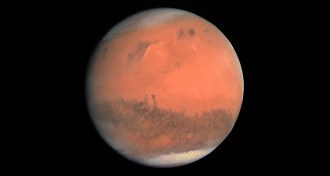 Planetary Science
Planetary ScienceMars may not have been born alongside the other rocky planets
Mars formed farther away from the sun than its present-day orbit, not near the other terrestrial planets, new research suggests.
-
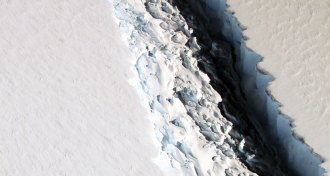 Earth
EarthCrack in Antarctica’s Larsen C ice shelf forks
An 180-kilometer-long rift in Antarctica’s Larsen C ice shelf has forked into two branches, new satellite observations show.
-
 Earth
EarthCrack in Antarctica’s Larsen C ice shelf forks
An 180-kilometer-long rift in Antarctica’s Larsen C ice shelf has forked into two branches, new satellite observations show.
-
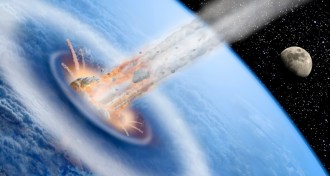 Planetary Science
Planetary ScienceHere’s how an asteroid impact would kill you
Most deaths caused by an asteroid impact would result from shock waves and winds generated from the blast, rather than effects such as earthquakes and tsunamis, new simulations show.
-
 Environment
Environment‘Fossil’ groundwater is not immune to modern-day pollution
Ancient groundwater that is thousands of years old is still susceptible to modern pollution, new research suggests.
-
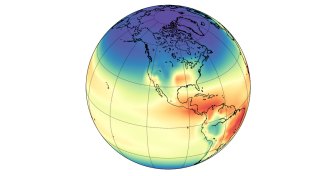 Climate
ClimatePlot twist in methane mystery blames chemistry, not emissions, for recent rise
The recent rise in atmospheric methane concentrations may have been caused by changes in atmospheric chemistry, not increased emissions from human activities, two new studies suggest.
-
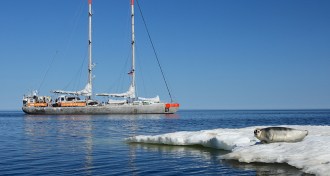 Oceans
OceansThe Arctic is a final garbage dump for ocean plastic
Ocean currents dump plastic garbage from the North Atlantic into previously pristine Arctic waters, new research shows.
-
 Oceans
OceansThe Arctic is a final garbage dump for ocean plastic
Ocean currents dump plastic garbage from the North Atlantic into previously pristine Arctic waters, new research shows.
-
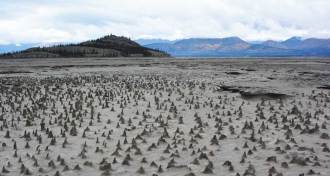 Earth
Earth‘River piracy’ on a high glacier lets one waterway rob another
The melting of one of Canada’s largest glaciers has rerouted meltwater from one stream into another in an instance of river piracy.
-
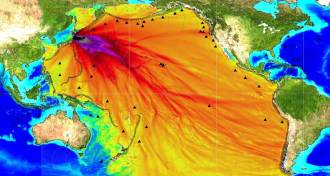 Oceans
OceansMore than one ocean motion determines tsunami size
The horizontal movement of the seafloor during an earthquake can boost the size of the resulting tsunami, researchers propose.